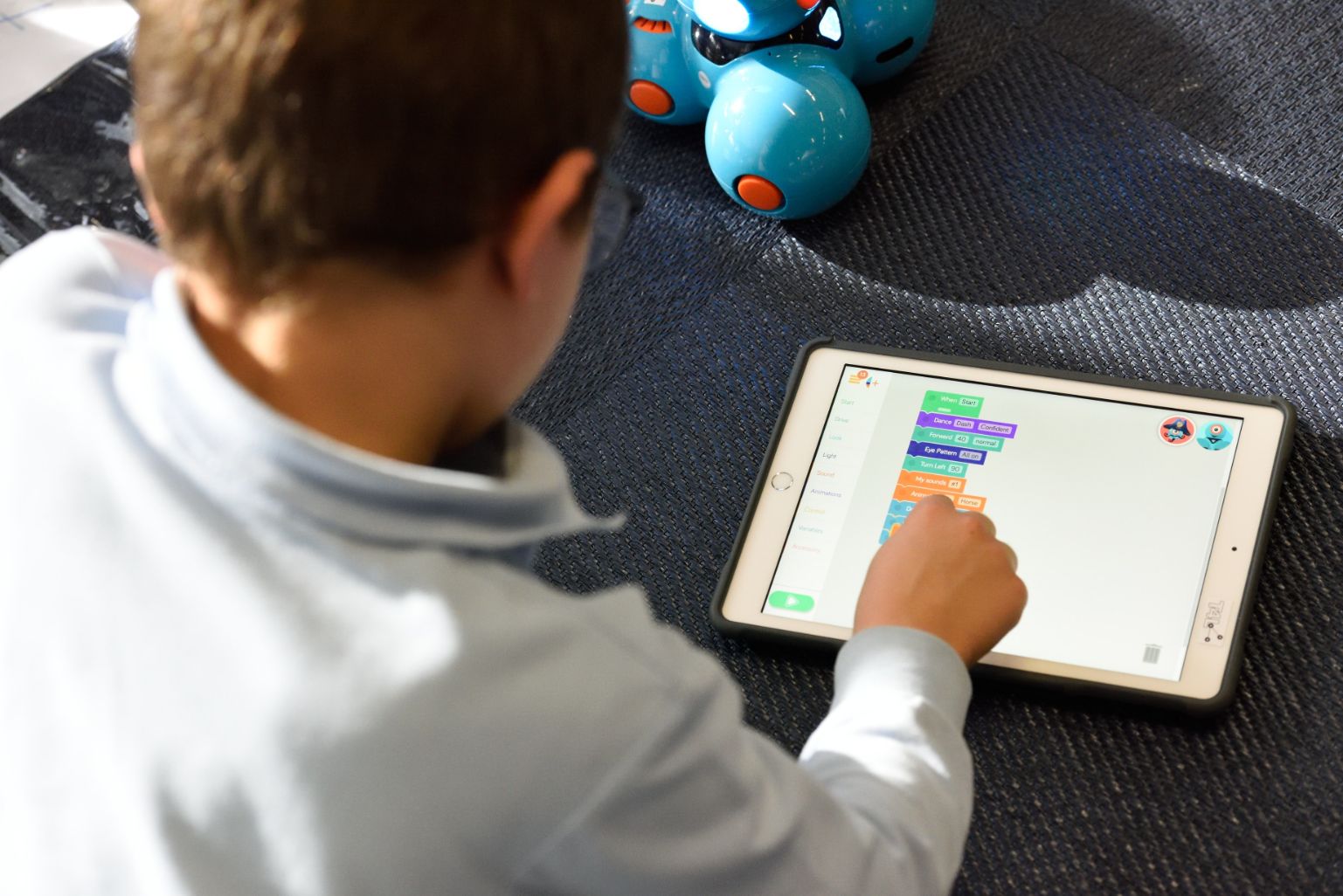A pediatrician’s study guide to responsible parenting in a media-driven world.
Children spend an average of seven hours every day on entertainment media (including TV, computers, mobile phones and other electronic devices), according to the American Academy of Pediatrics (AAP). That’s more time than many kids spend at school — or in bed.
As the mother of three children (ages 11, 9 and 6) and as a pediatrician, I knew there was an increasing trend toward excessive media consumption, but even I found this statistic shocking.
Each day in my office, I see children of all ages with iPads and iPhones in hand. And at home, I see my children’s education increasingly intertwined with the use of media. In the community, I see media widely used as a pacifier. Like any busy parent, I am some- times tempted to use media to placate a bored or cranky child . . . but I’m also aware of the dangers of children not learning to manage their behavior, or entertain themselves with- out these devices. What is a parent to do?
Compelled to broaden and deepen my understanding of this problem, I reached out to an expert for advice: Dr. Michael Rich, Associate Professor at Harvard Medical School and Harvard School of Public Health. A renowned national authority on the effects of media on children, Dr. Rich (who is known as “The Mediatrician”) was also an instructor of mine during my pediatric residency. He gave me the answers I was looking for — and even more food for thought.
We all know media are here to stay. So now more than ever, parents need practical guidance on how to harness their power, and how to promote media literacy and responsibility in the home.
The problems with media overuse are well established. The negative effects that too much screen time can have on children include obesity, disordered sleep and eat- ing patterns, and inattention. In addition, Dr. Rich says: “I am seeing anxiety … social isolation . . . a real drop off in academic work.” Of greater concern is an increase in “essentially addictive behavior in the electronic space,” he says. “Media are designed to hook you in and keep you hooked in.”
Dr. Rich says he sees a “pattern of ‘checking out’ from parenting our children in the digital space.” He cautions parents not to simply provide devices, even with safety software, and then walk away. That’s just not enough. “It’s like sending your children to a party and not knowing the parents, who is going to be there, or whether there is alcohol,” he says. The AAP reports that 66 percent of children have no rules on media. I believe this is a real problem.
Media need to be managed. But, according to Dr. Rich, it’s not simply about limiting the time spent. His next point resulted in a paradigm shift in my thinking as a clinician and a mother: “Time limits are a thing of the past. I do not think they are effective,” he says. “It’s easy to get caught up in this blur of what is schoolwork and what is play.
“Based on the data we have collected and the research we have done around the world, we now recommend not using screen time limits at all, as they create ‘forbidden fruit’ — and you set yourself up for conflict every single time,” he adds.
Instead, Dr. Rich recommends this prescription for success: “What we should provide for our children is a rich menu of experience. It includes media use, but also taking a walk, playing ball and hanging out with friends. Balancing their media intake is much like balancing their nutritional in- take.” He advocates age-appropriate media
choices and an educational focus whenever possible. He recommends the following resources: Common Sense Media (commonsensemedia.org) and his own Boston Children’s Hospital Center on Media and Child Health (cmch.tv). But be advised that parents need to take a critical next step: calibrating this information with their own families and values.
Dr. Rich’s accumulated data indicate that children under 30 months of age are incapable of learning from a screen medium like TV. It is best to keep infants and young toddlers screen-free. “Music and books are wonderful; they allow a child to move and the imagination to fly,” says Dr. Rich.
Media are not to be feared; instead, parents should consider them as tools. Used appropriately, media can enhance knowledge and school readiness, promote communication, and foster positive social behavior — as well as tolerance. So what is Dr. Rich’s best advice on how to bring up healthy, media-savvy kids?
“Treat media as tools that do certain things very well…but not everything,” he says. “When your child needs those tools and when your child is developmentally capable of using them safely, then introduce them to your child in mindful and conscious ways.”
10 WAYS TO MANAGE KIDS’ USE OF MEDIA
1. CONSIDER CONTENT: Make age-appropriate and preferably educational choices for your family. Cross check with reliable resources.
2. CONSIDER TIME: Time spent on media should be balanced with other important learning and play activities. It’s best to avoid screen time for children under 30 months.
3. MONITOR USE: Create Internet safeguards and parental controls
in your home — and don’t just walk away after you do.
4. PARTICIPATE IN AND ENCOURAGE CRITICAL THINKING: Watch movies together and engage your children in discussions on a variety of topics.
5. CREATE SCREEN-FREE ZONES: TVs, computers and video games do not belong in children’s bedrooms. Make meal times TV-free. Turn off the TV if no one’s watching.
6. SET VIDEO GAME LIMITS: Insist that children finish all other tasks first. And don’t rely on industry ratings, which can be misleading. Do your own research.
7. BE A ROLE MODEL: Your children watch you closely every day. Keep in mind that “apples do not fall far from the tree.”
8. ESTABLISH FAMILY RULES: Develop a media home use plan (see the Family Media Agreement at commonsensemedia.org). Discuss your family’s unique guidelines and why the limits you set are important.
9. BE CONSISTENT: Be sure that spouses, older siblings and childcare providers are all on the same page.
10. ENCOURAGE ALTERNATIVES: Read, draw, enjoy music, play out- side! Don’t be afraid of a little boredom . . . it can foster creativity
“Dr. Katy” Noble is a mother of three with a vibrant practice, Sound Beach Pediatrics in Stamford, CT. She completed her residency at Harvard- affiliated Boston Children’s Hospital




